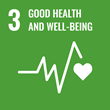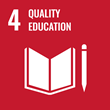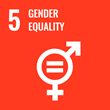Project information
National Institute of Virology and Bacteriology
(NIVB)

- Project Identification
- LX22NPO5103
- Project Period
- 6/2022 - 12/2025
- Investor / Pogramme / Project type
-
Ministry of Education, Youth and Sports of the CR
- national recovery plan
- 5.1 EXCELES
- MU Faculty or unit
-
Central European Institute of Technology
- prof. RNDr. Robert Vácha, PhD.
- Mgr. Gabriel Demo, Ph.D.
- Mgr. Martina Drabinová
- Francesco Luca Falginella, Ph.D.
- Ing. Tibor Füzik, Ph.D.
- Mgr. Mária Gondová
- Ing. et Ing. Miroslav Haman
- Mgr. Adelheid Hanáčková
- Ing. Ondřej Kroutil, Ph.D.
- Timothée Emmanuel Jonath Rivel, Ph.D.
- Mgr. Jana Salamonová
- prof. RNDr. Robert Vácha, PhD.
- Other MU Faculty/Unit
- Faculty of Medicine
- Other MU Faculty/Unit
-
Faculty of Science
- prof. RNDr. Roman Pantůček, Ph.D.
- Mgr. Tibor Botka, Ph.D.
- Lenka Buňatická
- prof. RNDr. Jiří Doškař, CSc.
- Mgr. Adéla Finstrlová, Ph.D.
- Mgr. Jiřina Havránková
- Mgr. Vojtěch Kovařovic, Ph.D.
- Mgr. Lucie Kuntová, Ph.D.
- Mgr. Ivana Mašlaňová, Ph.D.
- Mgr. Michal Zeman, Ph.D.
- Cooperating Organization
-
Institute of Microbiology of the ASCR, v. v. i.
Institute of Molecular Genetics of the ASCR, v. v. i.
Institute of Organic Chemistry and Biochemistry of the ASCR, v. v. i.
- Responsible person RNDr. PhDr. Zdeněk Hostomský, CSc.
Palacký University, Olomouc
Prague Institute of Chemical Technology
Biological Centre of the ASCR, v. v. i.
Basic and oriented or clinical research on viruses and pathogenic bacteria is essential to understand the processes by which they cause disease, how they escape the immune system and how they can resist treatment. Therefore, research activities at the National Institute of Virology and Bacteriology will focus on characterizing pathogens causing existing and emerging infectious diseases, describing virus and bacteria interactions with the host, understanding the molecular mechanisms of pathogenesis, and developing antiviral and antibacterial agents and vaccines. Individual research groups will work on viruses and bacteria causing diseases with significant health and economic impact, including HIV-1, influenza, tick-borne encephalitis, hepatitis B, SARS-CoV-2, enteroviruses, and the bacteria B. pertussis, S. aureus, and T. pallidum. By working with pathogens that are relevant to current clinical practice, the research groups will have the expertise and equipment for the ongoing study of new pathogens that could become prevalent in the human population in the future.
Sustainable Development Goals
Masaryk University is committed to the UN Sustainable Development Goals, which aim to improve the conditions and quality of life on our planet by 2030.
Publications
Total number of publications: 90
2024
-
Amphipathic Helices Can Sense Both Positive and Negative Curvatures of Lipid Membranes
Journal of physical chemistry letters, year: 2024, volume: 15, edition: 1, DOI
-
Corynebacterium mendelii sp. nov., a novel bacterium isolated from Adélie penguin oral cavity
International Journal of Systematic and Evolutionary Microbiology, year: 2024, volume: 74, edition: 1, DOI
-
Effect of soil depth on the structure of bacterial composition in the active layer at five geologically distinct sites on James Ross and Vega Islands in Antarctica
Polar Biology, year: 2024, volume: 47, edition: 3, DOI
-
High colonisation by probiotic Escherichia coli A0 34/86 strain is associated with a less diverse microbiome related to children’s age
Beneficial Microbes, year: 2024, volume: 15, edition: 1, DOI
-
High prevalence and genetic diversity of Treponema paraluisleporidarum isolates in European lagomorphs
Microbiology spectrum, year: 2024, volume: 12, edition: 1, DOI
-
Insertases scramble lipids: Molecular simulations of MTCH2
Structure, year: 2024, volume: 2024, edition: 32, DOI
-
Low genetic diversity of Treponema pallidum ssp. pertenue (TPE) isolated from patients’ ulcers in Namatanai District of Papua New Guinea: Local human population is infected by three TPE genotypes
PLoS neglected tropical diseases, year: 2024, volume: 18, edition: 1, DOI
-
Synthetically-primed adaptation of Pseudomonas putida to a non-native substrate D-xylose
Nature Communications, year: 2024, volume: 15, edition: March 2024, DOI
-
The Arg753Gln Polymorphisms in Toll-like Receptor 2 in a Syphilis-Infected and Control Population in The Netherlands: Can Differences in the Number of Self-Reported Sexual Contacts Indicate Protection against Syphilis?
Venerology, year: 2024, volume: 3, edition: 1, DOI
2023
-
Antibakteriální lyofilizovaná tableta
Year: 2023


